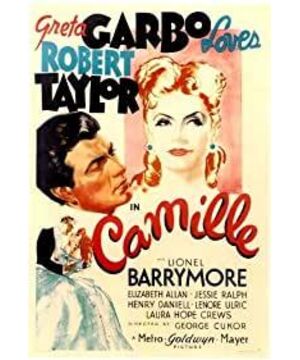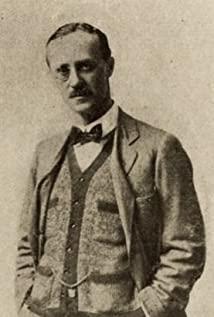Black and white movies do not have colorful visual effects. They virtually add classic light to the vicissitudes of the masterpiece itself. Director George Cook has directed a series of classic movies such as "Gone with the Wind" and "Slim Lady". His directorial style tends to Shows the tension of the plot and excavated women with different looks. (Thank you the director for letting Olivia de Havilland shape the most beautiful Melanie~❤)
This famous book "La Traviata" is based on the real experience of the writer Alexandre Dumas. In reality, La Traviata is Dumas's mistress. The movie tells the tragic story of the male protagonist Amon and the dusty woman Margaret.
At the beginning of the story, Margaret and Amon met for the first time in the theater. The friend Olympe on the side saw the baron, but Margaret first saw Amon who mistakenly thought he was a baron. The two met for a while. People are quite congenial, Marguerite fell into the dust, and smiled artificially when facing the baron, but smiled so innocently in front of Amon, Greta Garbo interpreted Marguerite’s cleverness and kindness, and maintained a noble heart. Help Xue Ni prepare the wedding dress and dowry, and willingly sacrifice her and Amang's happiness to promise Amang's father.
When making any decision, one has to think twice. You can't blindly follow the ideas of your elders and go against your will. Life is a blessing and a blessing in life, and even worse. You must speak up when you have suffered and grievances, otherwise this softness without boundaries will eventually hurt yourself.
After breaking up with Amang, La Traviata could only return to the arms of the indifferent baron. Outside, she did not get the respect of the baron. Compared to likes and loves, I cared more about respect, because a lot of likes come from treating a person. The appearance, wealth, and status are these surfaces, and respect is derived from a person's true qualities and cultivation. Margaret did not try her best to study and think again, to bravely bid farewell to the Amon, the baron who cares about and the baron, who ruined her reputation because of misunderstandings and hatred, if Margaret could waste time. Make good use of the irretrievable time every minute and every second, and then her inside will be like a vast land.
Don't owe flowers if it's okay! The ability to make money has to be continuously improved. Otherwise, like Margaret, she is in debt. She cheeks and asks the baron for money to repay the debt. The baron slaps her severely, and Amon thinks she is greedy for vanity. She came to humiliate her. Before she died, she was penniless or relied on Gaston relief to make ends meet. Girls must have their own financial independence, rely on the support of others, lose their own initiative, and lose the opportunity to broaden their horizons in the future.
In the end, Margaret should not choose the baron from the rich side, nor the Aman who has brought her passion and trauma. (Robert Taylor in the movie is really a perfect face, beautiful figure, and a perfect interpretation of the young and handsome boy Aman. No wonder Maya (played by Vivien Leigh) in "Broken Blue Bridge" jumped down for him, and Margaret in "La Traviata" died for him, a typical non-mainstream love funeral tool), but accompanied the bed on the side Gaston, he is Amon's friend, and the warm and real person in Margaret's life.
If the poignant Margaret can understand that the swords and guns are not bad, it is because of the scars that have been scarred, and the changes in the situation have been devastated. Everyone who is hardworking and strong has no place to nostalgia. Everyone who despises the love of men and women. People have never been obsessed with it. The price of growth is to bid farewell to the past self step by step, and everything they experience is to achieve a better self.
View more about Camille reviews











